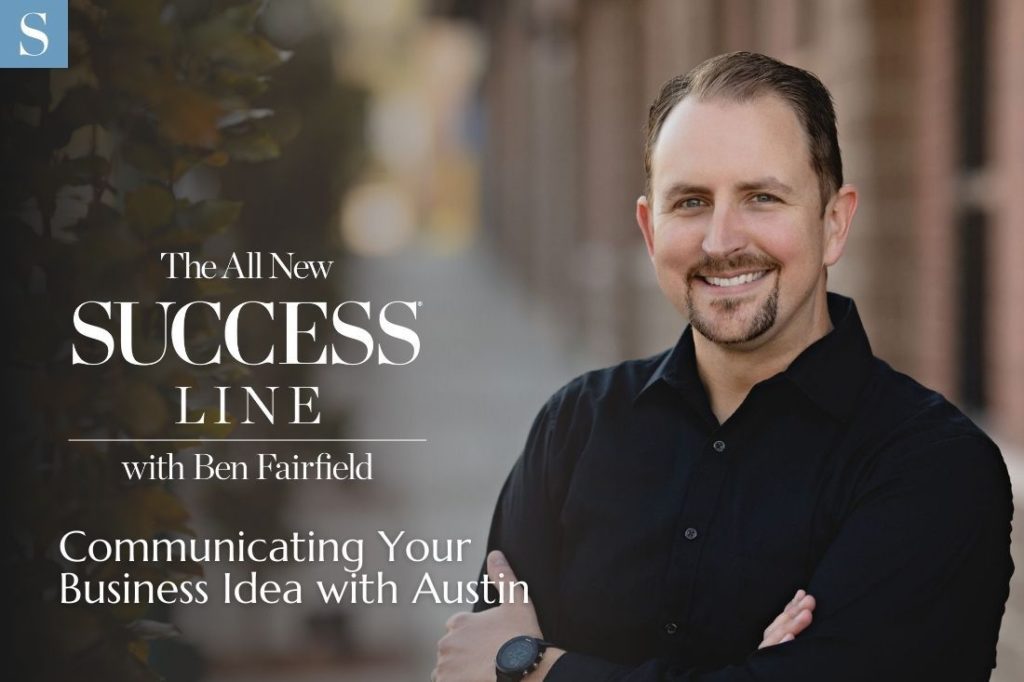On this week’s episode of SUCCESS Line, I talk to Austin, a young entrepreneur with big ideas for his new business venture. He is eager to get this new project off the ground, but his messaging keeps falling flat—even his wife has questions when he tries to explain the business to her.
If you’re an entrepreneur like Austin, your vision for your business is likely crystal clear. It has lived in your mind for so long that you can already see the company in its fully formed state. However, when you take your idea out of the incubator in your mind, you might find that your audience doesn’t quite “get it.” But that does not necessarily mean your idea won’t work—you just haven’t found the right messaging yet.
These days, our attention spans are getting shorter and shorter; your content only has about three to five seconds to entice the audience before they move along to the next thing. In order to break through, you need to succinctly and clearly deliver the vision for your business in two sentences or less.
But how? How do we consolidate all of the hopes, dreams and long hours we have poured into our business into a mere two sentences or less?
Here I turn to a brilliant book by Dan Kennedy, The Ultimate Sales Letter. In it, he provides a set of powerful questions aimed to bring you clarity on who you are trying to serve and what your audience is looking for. If you’ve struggled to find an effective message for your business, read on for 10 questions that will help you craft a message that will make an impact.
- What keeps your target prospect awake at night?
- What are they afraid of?
- What are they angry about or who are they angry at?
- What are their top 3 daily frustrations?
- What trends are occurring and will occur in their lives or business?
- What do they secretly, ardently desire most?
- Is there a built in bias to the way they make decisions?
- Do they have their own language?
- I’ll note that this question does not refer to dialect, but rather is asking, does your target audience, as a group of people with shared interests, have a communal jargon or terminology set that they understand and other people don’t.
- Who else is offering a similar product to what you are trying to offer?
- Who else has tried doing something similar and how has their effort failed?
When you reach the end of these questions take stock of what you have learned, and incorporate your answers into your messaging. For example, take their three daily frustrations and create a series of short-form content pieces that address those problems. Use buzzwords from the jargon you described to make your content highly searchable. Draw in your audience with catchy titles that promise to provide the secret to achieving what they “secretly, ardently desire.” Identify those groups with similar goals and study them: what do they do well? And what are they missing? All of these steps will add to the legibility of your messaging.
So many entrepreneurs make the mistake of trying to craft a message that will reach everyone. But good messaging does not come from going bigger—it comes from going deeper. Take the time to get extreme clarity on the vision for your business. When you do that, your messaging might land on fewer people, but it will land much more effectively
We are living in a world of messaging overload, and consumers don’t know who to trust. Messaging matters now more than ever, and this is a truth that transcends industry. It is mission-critical to any movement, organization, or business to deliver succinct messaging that will resonate with their target audience.
Don’t let your idea wither simply because you couldn’t figure out how to explain it. There are people out there who need what you have to offer—you just have to get out there and find them.
The SUCCESS Line is no longer releasing new episodes on the SUCCESS Podcast Network, but you can still listen to the full conversation below.












